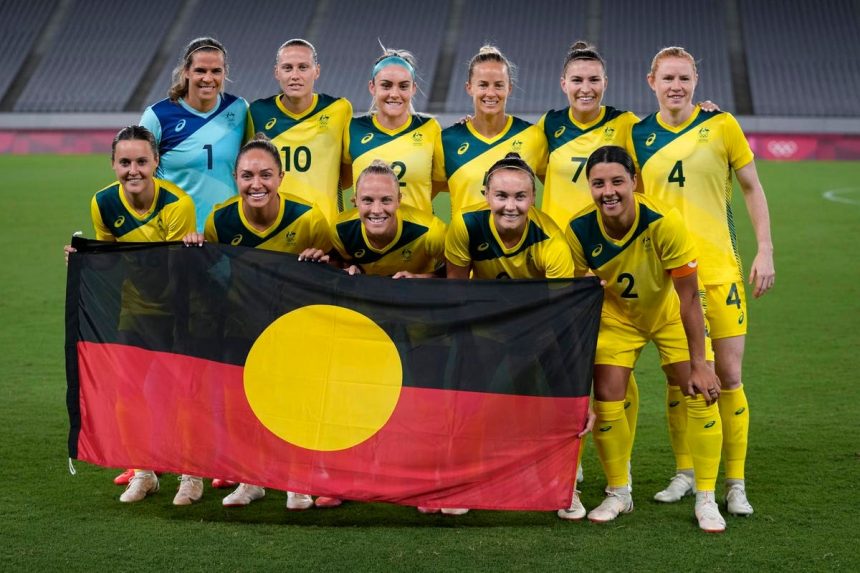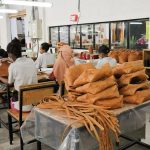Indigenous flags of Australia and New Zealand will be on display at the Women’s World Cup, FIFA said on Friday, adding that the governing body aims to recognize the unique cultures and stories of both countries to ensure that they are respected throughout all aspects of this year’s tournament.
The Australian flag, Australian Aboriginal flag and Torres Strait Islander flag will be flown in each of Australia’s six host stadiums, while the New Zealand flag and the Maori flag, known as Tino Rangatiratanga, will be displayed in each of New Zealand’s four host stadiums.
ADVERTISEMENT
This year’s World Cup, the ninth edition of the tournament, will be held from July 20 to August 20.
FIFA President Gianni Infantino announced the decision on Friday after the governing body approved a request from Australia and New Zealand football organisations.
“FIFA recognises the importance of First Nations in Australia and Maori as tangata whenua in Aotearoa New Zealand in the hosting of the FIFA Women’s World Cup Australia & New Zealand 2023,” Infantino said.
“An important step in the delivery and preparation of the tournament was the establishment of an all-women cultural advisory panel to create enduring relationships in partnership with First Nations and Maori communities and to ensure meaningful engagement and inclusion for all cultural touchpoints across the tournament.”
ADVERTISEMENT
Football Australia CEO James Johnson appreciated FIFA’s decision, as did New Zealand Football CEO Andrew Pragnell.
“Confirmation by FIFA that all official flags of Australia will be flown during the FIFA Women’s World Cup is an important moment for all Australians, particularly First Nations people,” Johnson said. “This decision aligns with the values of our organisation, with diversity and inclusion being at the core of what we’re about as a governing body.”
“Flying tino rangatiratanga at the tournament alongside the official country flag is a powerful symbol, reflecting the partnership between the Crown and Maori that is the foundation of this country. I want to thank FIFA for this decision, as well as acknowledge the work of the New Zealand Government and the tournament’s cultural advisory panel in achieving this outcome,” Pragnell said.
Throughout the World Cup, FIFA will unveil other initiatives connected to the UN International Day of the World’s Indigenous Peoples, which is celebrated on August 9.
Australia’s World Cup squad includes Indigenous Australian players Kyah Simon and goalkeeper Lydia Williams. The Matildas displayed the Aboriginal flag before a match against New Zealand at the Tokyo Olympics.
ADVERTISEMENT
Read the full article here










